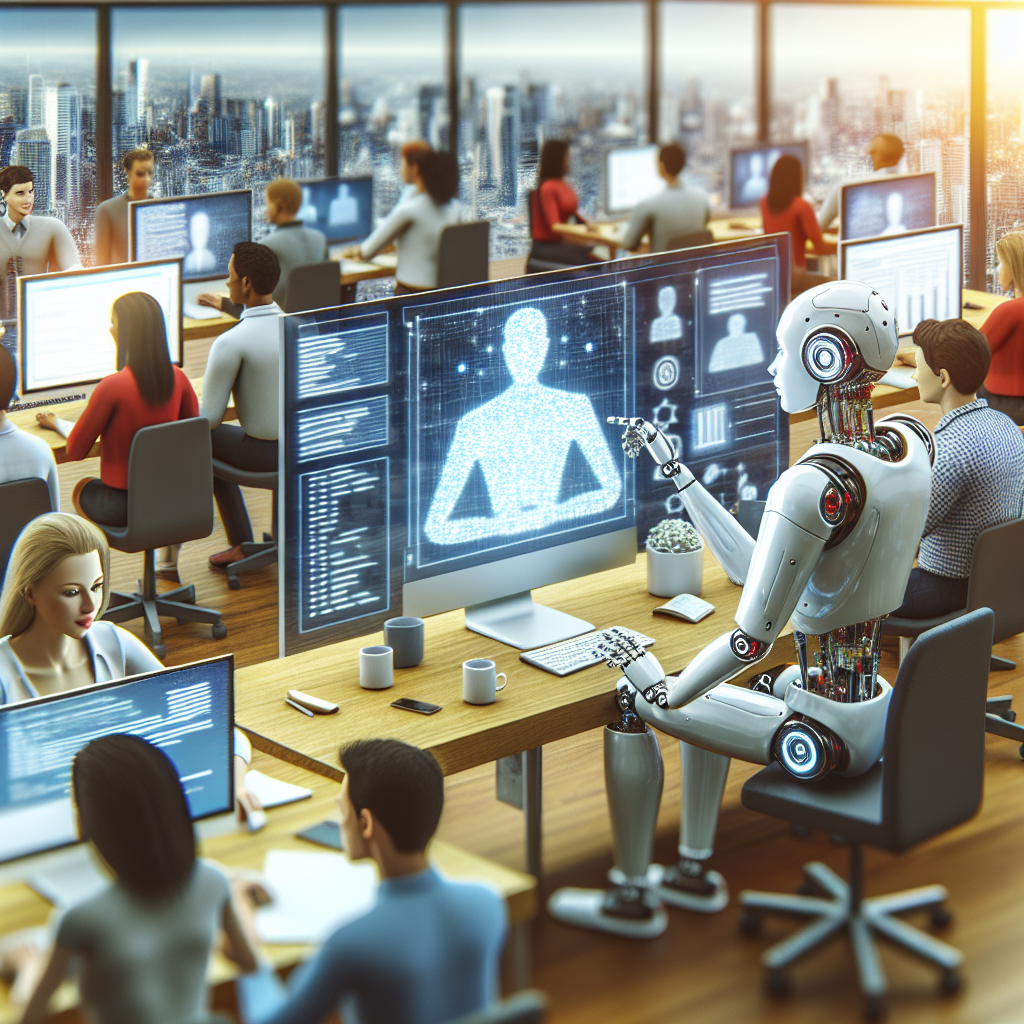The Impact of AI Integration on Human Resources
Artificial Intelligence (AI) has been revolutionizing industries across the board, and Human Resources (HR) is no exception. The integration of AI in HR processes has streamlined operations, increased efficiency, and enhanced decision-making capabilities. However, this advancement has also raised concerns about job displacement and the ethics of AI in the workplace. In this article, we will explore the impact of AI integration on HR and address some common questions and concerns.
1. Streamlined Recruitment Process
One of the most significant impacts of AI integration in HR is the streamlining of the recruitment process. AI-powered tools can analyze resumes, screen candidates, and even conduct initial interviews. This automation not only saves time but also ensures a more objective evaluation of candidates based on their skills and qualifications rather than subjective biases.
2. Enhanced Employee Experience
AI can also improve the overall employee experience by offering personalized learning and development opportunities, feedback, and career guidance. AI-powered chatbots can provide instant responses to HR-related queries, freeing up HR professionals to focus on more strategic tasks.
3. Data-Driven Decision Making
AI can analyze vast amounts of data to identify trends, patterns, and insights that can inform strategic decision-making. By leveraging AI tools, HR professionals can make more informed decisions about talent acquisition, retention, and development.
4. Predictive Analytics
AI can also enable predictive analytics in HR, forecasting future trends and identifying potential issues before they arise. This proactive approach can help HR departments address challenges such as employee turnover, performance issues, and skill gaps.
5. Ethical Considerations
While AI integration in HR offers many benefits, it also raises ethical considerations. For example, AI-powered tools may inadvertently perpetuate biases present in historical data, leading to discriminatory outcomes. HR professionals must ensure that AI algorithms are transparent, accountable, and fair to all employees.
6. Job Displacement
One of the most common concerns about AI integration in HR is the potential for job displacement. While AI can automate routine tasks, it cannot replace the human touch and emotional intelligence required for complex decision-making and interpersonal relationships. HR professionals should view AI as a tool to enhance their capabilities, rather than a threat to their roles.
7. Skills Development
As AI continues to reshape the HR landscape, HR professionals must adapt and develop new skills to remain relevant in the digital age. Skills such as data analysis, programming, and AI literacy are becoming increasingly valuable in the HR field.
8. Employee Trust
Maintaining employee trust is crucial when implementing AI in HR processes. Employees may be wary of AI-powered tools that collect and analyze their data. HR departments must be transparent about how AI is used, ensure data privacy and security, and communicate the benefits of AI integration to build trust among employees.
FAQs:
1. How can AI improve the recruitment process?
AI can improve the recruitment process by automating tasks such as resume screening, candidate matching, and interview scheduling. AI-powered tools can also analyze candidate data to identify the best fit for a role based on skills, qualifications, and cultural fit.
2. Will AI replace HR professionals?
While AI can automate routine tasks in HR, it cannot replace the human touch and emotional intelligence required for complex decision-making and interpersonal relationships. HR professionals should view AI as a tool to enhance their capabilities, rather than a threat to their roles.
3. What are the ethical considerations of AI integration in HR?
Ethical considerations of AI integration in HR include ensuring transparency, accountability, and fairness in AI algorithms. HR professionals must be aware of potential biases in AI tools and take steps to mitigate them to ensure fair treatment of all employees.
4. How can HR professionals adapt to AI integration?
HR professionals can adapt to AI integration by developing new skills such as data analysis, programming, and AI literacy. They should also embrace AI as a tool to enhance their capabilities and focus on strategic tasks that require human judgment and empathy.
In conclusion, the integration of AI in HR processes offers many benefits, including streamlined recruitment, enhanced employee experience, data-driven decision-making, and predictive analytics. However, HR professionals must also address ethical considerations, job displacement concerns, and the need for skills development to navigate the changing landscape of HR in the digital age. By embracing AI as a tool to enhance their capabilities, HR professionals can leverage its power to drive organizational success and create a more efficient and inclusive workplace.

